A summer of service for first-years
SPARK program participants embark on a range of projects in their hometowns
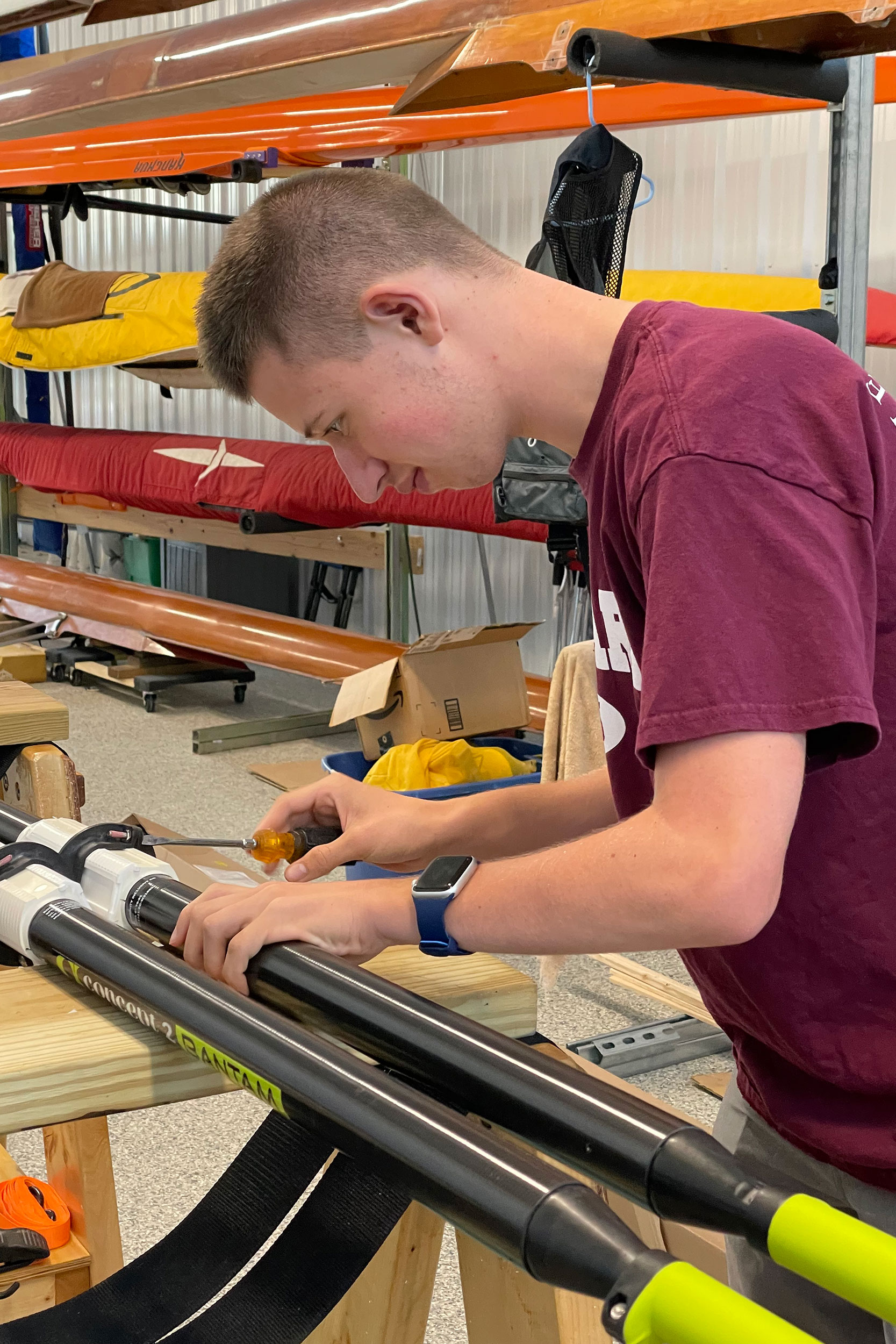
Daniel Villani spent his summer working at Rochester Community Inclusive Rowing along the Genesee River.
Courtesy of Daniel Villani
A cohort of 123 Harvard first-years embarked on a variety of service projects this summer, from improving community gardens to educating unhoused women and children about hurricane preparedness, as part of the College’s SPARK program. Participants in the three-year-old initiative, housed at the Center for Public Service and Engaged Scholarship, design and implement proposals in their hometowns prior to arriving on campus. Each spends 100 hours over six weeks on their projects, including time for discussions with faculty, staff, and student leaders involved in community service on campus. The Gazette spoke to eight students about their work and the unique challenges created by the pandemic.
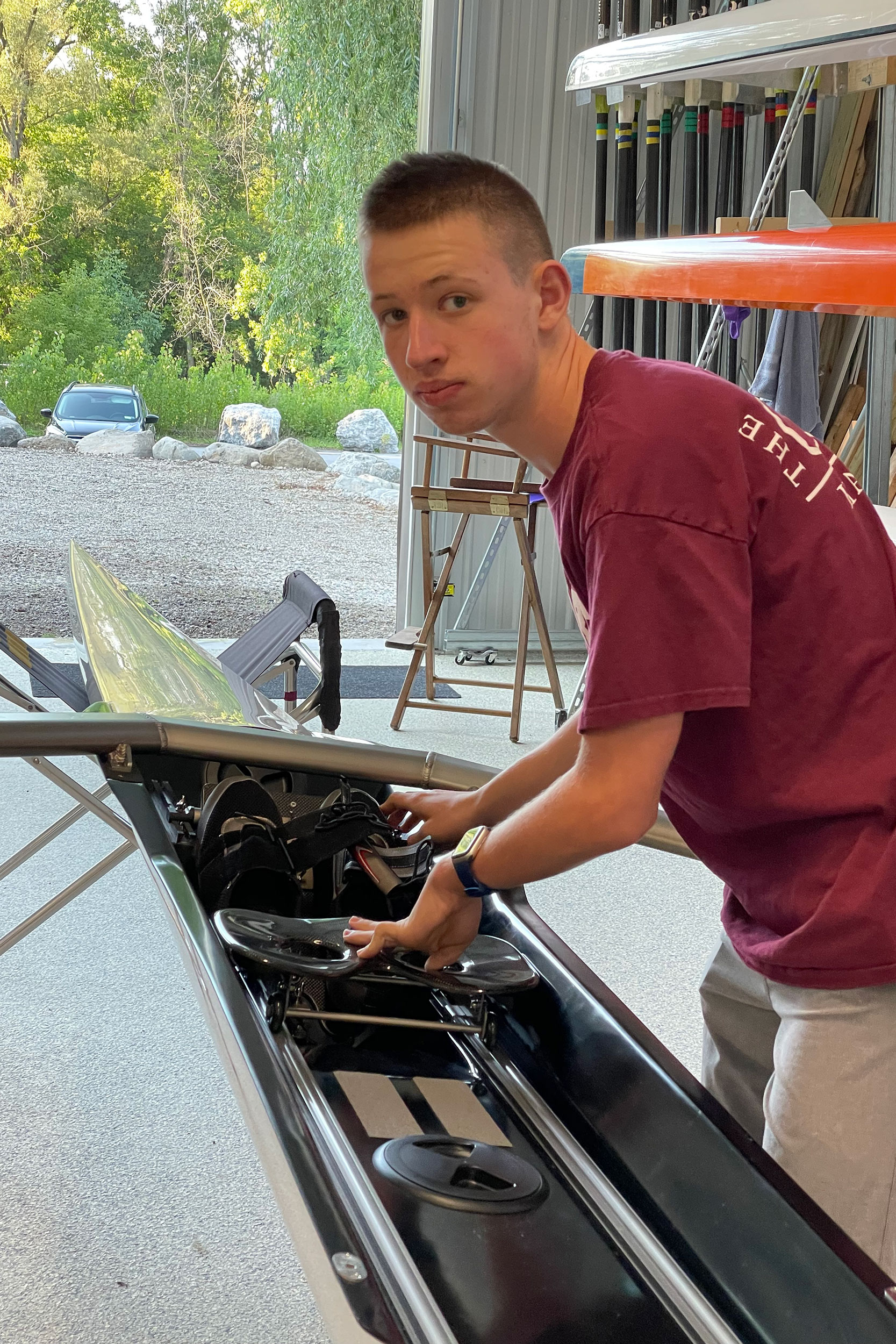
Daniel Villani
Rochester, New York
Rochester Community Inclusive Rowing
Daniel Villani, whose range of motion is limited due to cerebral palsy, had his first lesson at Rochester Community Inclusive Rowing (RCIR) in 2016. He was hesitant about learning to scull — rowing with one oar in each hand — because of his physical challenges, but instructors encouraged him to continue, in keeping with the organization’s mission of inclusion and adaptability.
RCIR offers free rowing opportunities to veterans, people with disabilities, those experiencing mental illness, and anyone who faces a “challenge,” said Villani.
Five years later, Villani is able to move his left wrist — which he was previously unable to do — and has overall greater range of motion. He wanted to ensure that more people in his hometown would be able to participate in the “unparalleled” experience of being on the water at RCIR, and he also wanted to find a way to give back to the organization. So Villani spent his summer developing materials for a fundraising campaign for RCIR, which included managing a GoFundMe page and creating a promotional video.
“RCIR was founded with a mission to help bring adaptive rowing to Rochester and to provide opportunities for anybody to experience the magical, life-changing properties rowing can have,” said Villani. “It’s been really nice to be able to help them change other people’s lives like they’ve changed mine.”
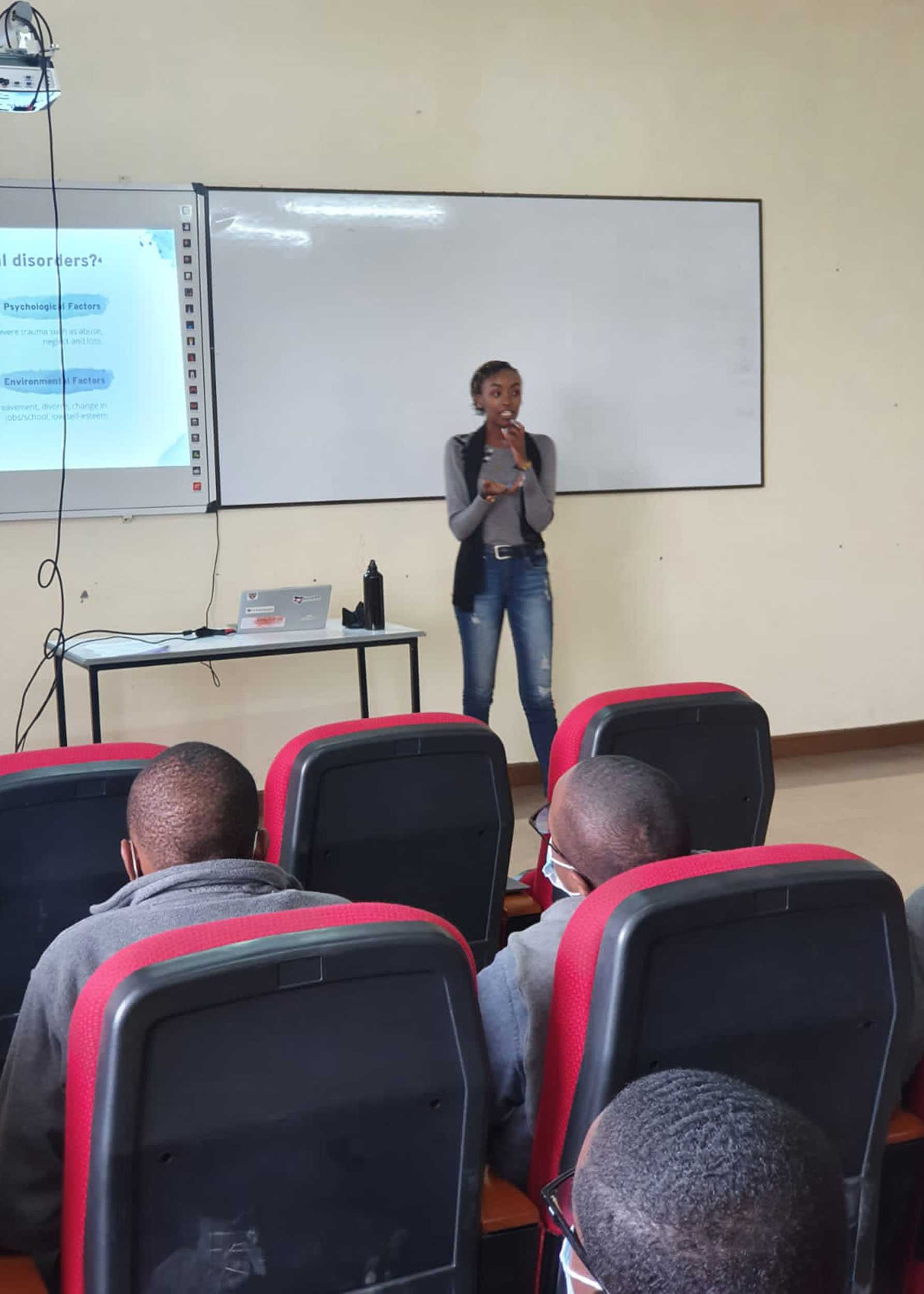
Alphania Muthee
Limuru, Kenya
Shamiri Institute
Alphania Muthee, who lives in Nairobi, started working earlier this year with the Shamiri Institute, a local nonprofit that develops interventions to improve mental well-being among sub-Saharan African youth, because she knew that many of her peers were struggling with similar issues.
“Many students in our country have depression and anxiety and will not get help because of the stigma surrounding the issue,” said Muthee. “They know that if they decide to get help, they may be made fun of by their peers, or maybe not get the kind of help that they require.”
As a SPARK fellow, she developed and ran workshops for high school students to dispel myths about mental illness and offered resources for participants to share with friends and families.
“Many of the students are very open to the content, and when they hear that I was in high school recently, most of them feel like I can relate to them,” said Muthee. “I hope the program helps the students become better ambassadors of mental health.”
Being in SPARK also gave Muthee an opportunity to stretch herself, knowing that she would have support if she ran into thorny challenges.
“This project pushed me beyond my comfort zone, because I was conceptualizing something from scratch. But in SPARK, you have people to help you with it,” she said. “Hearing from other SPARK students motivates me to think of other ways to help my own community.”
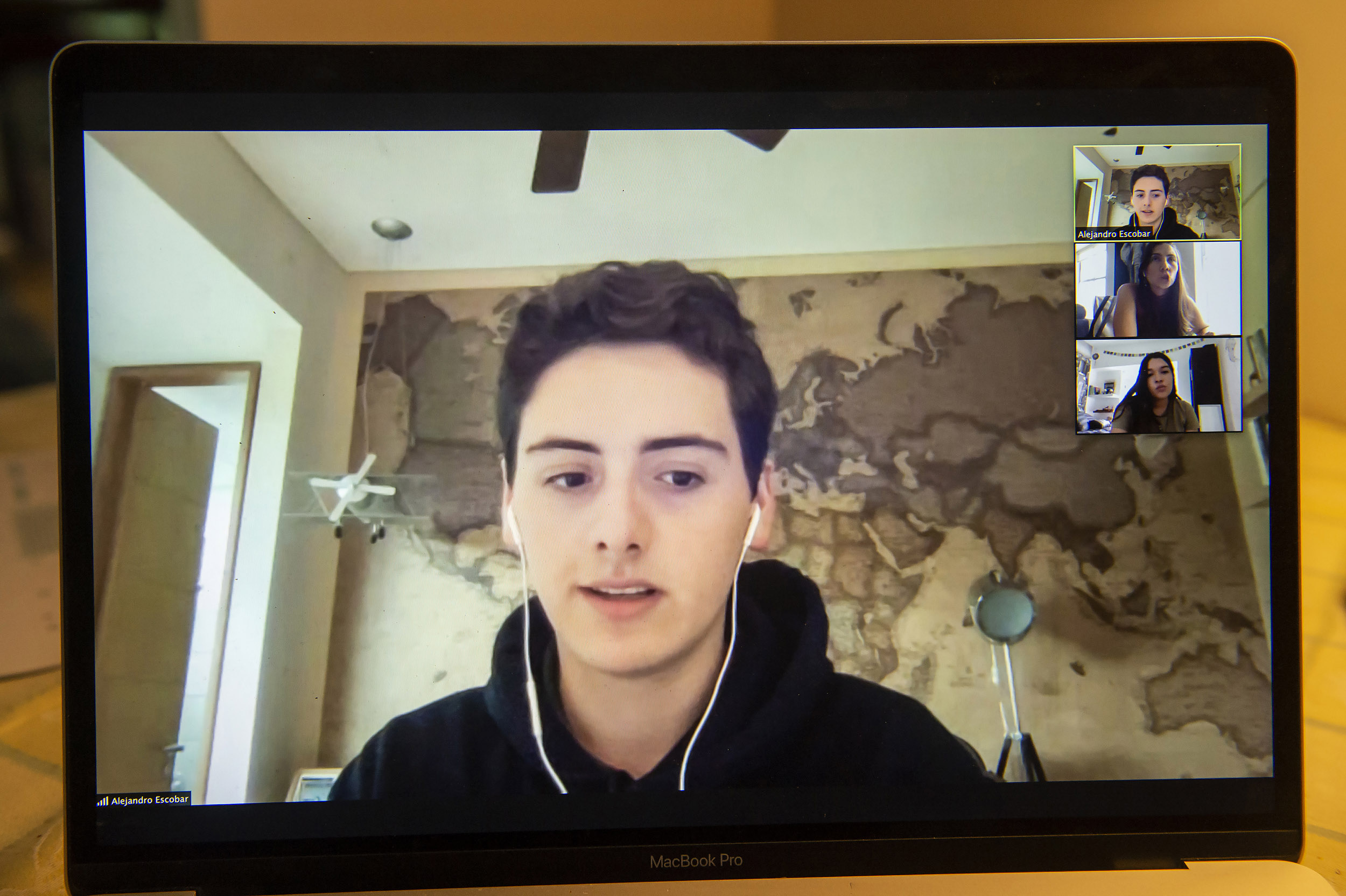
Alejandro Escobar was drawn to MasterPeace for its mission of building peace through art.
Jon Chase/Harvard Staff Photographer
Alejandro Escobar
Medellín, Colombia
MasterPeace Colombia
Alejandro Escobar has always been interested in promoting peace and helping community members lead conflict-less lives. After deciding to take a gap year, he reached out to MasterPeace Colombia when the pandemic ended his work with Fundación Héroe Camina (Hero Walks Foundation), an organization he had worked with as a high school senior. The group helps wounded Colombian military veterans reintegrate into civilian life and teaches them English.
“Through [Héroe Camina], I got really involved with things dealing with peace-building here in Colombia, and our postwar efforts to help people lead good lives again,” he said, referencing the conflict involving Colombia’s government, far-left guerrilla fighters, and far-right paramilitary groups. “I really wanted to partner with an organization here that had worked along the same lines.”
MasterPeace, a global organization located in more than 40 countries, aims to build peace worldwide through art. Escobar was attracted to the organization’s creative work with young people and children, he said.
In his hometown of Medellín, MasterPeace holds an annual festival called 4PeaceFest that includes art competitions for the city’s children. This year, the organization needed to figure out how to fund the festival while launching a kit that included a book on the psychology behind emotions, flashcards highlighting the different emotions a person can feel and how to handle them, as well as instructive diagrams on leadership and effective communication.
The 19-year-old worked to implement strategies and marketing for different endeavors MasterPeace hopes to take on. As part of his service project, Escobar is helping the organization build a network of companies that can be tapped for future fund-raising efforts.
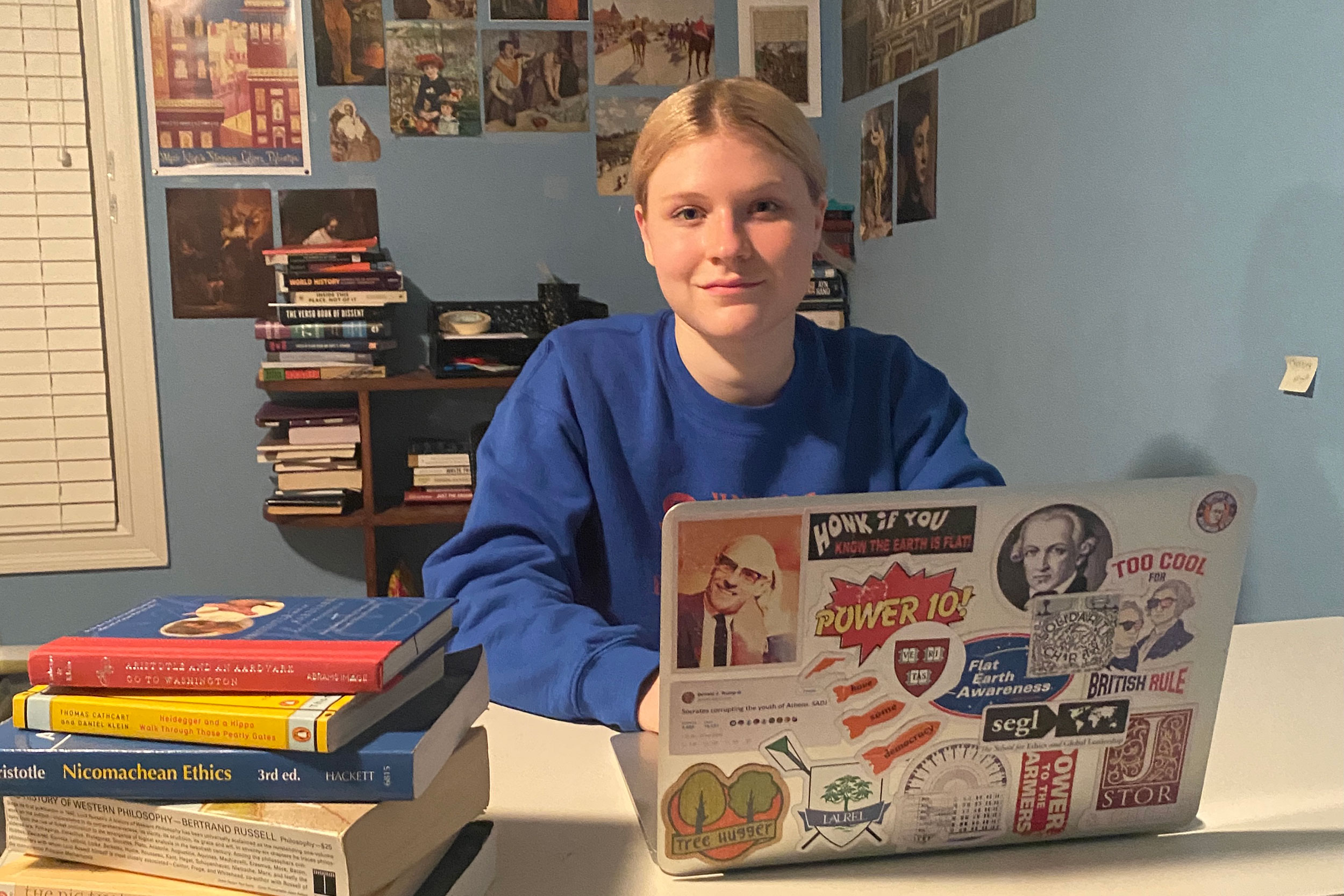
Katherine Cassese brought her love of philosophy home to children.
Courtesy of Katherine Cassese
Katherine Cassese
Solon, Ohio
Philosophy for Kids
Katherine Cassese applied to SPARK as a way to continue working with Philosophy for Kids (P4K), a program based in the philosophy department of John Carroll University near her hometown of Solon. In the program, undergraduates teach philosophy to kids in grades 5-12 through classroom visits and a summer camp. It was the kind of program Cassese wished she had experienced as a skeptical middle-schooler with an interest in life’s big questions.
“Kids are willing to question everything and assume that the world around them ought to make sense, and they point out when things don’t make sense,” she said. “I was one of those kids, and I guess I never stopped having those questions.”
Cassese, who spent the first six months of 2021 assisting with P4K classroom visits, was drawn to the program because students learn the foundations of philosophical thinking and apply it to their own lives, something she was unable to do when trying to learn the subject on her own.
“When I tried to actually get into philosophy, it was just too hard, and it took a while for me to find the right stuff to read. I was barely in high school and tried to read [French philosopher] Jacques Derrida’s work on ‘hauntology,’” a critical theory concept, she said. “Of course, it didn’t make sense, and I left philosophy alone for a while after that. So I’m glad that these students in the P4K program are given the appropriate material that’s not just philosophical theory, but also ties in with what it’s like to be a kid.”
For her SPARK project, Cassese wrote two short stories for a forthcoming volume of age-appropriate teaching materials and worked on a promotional video for potential school partners in the area.
“The more I know about philosophy, the more I think there is nothing more valuable than being able to reason well and talk with other people,” she said. “To me, it’s really about sitting down and thinking: How do we live well?”
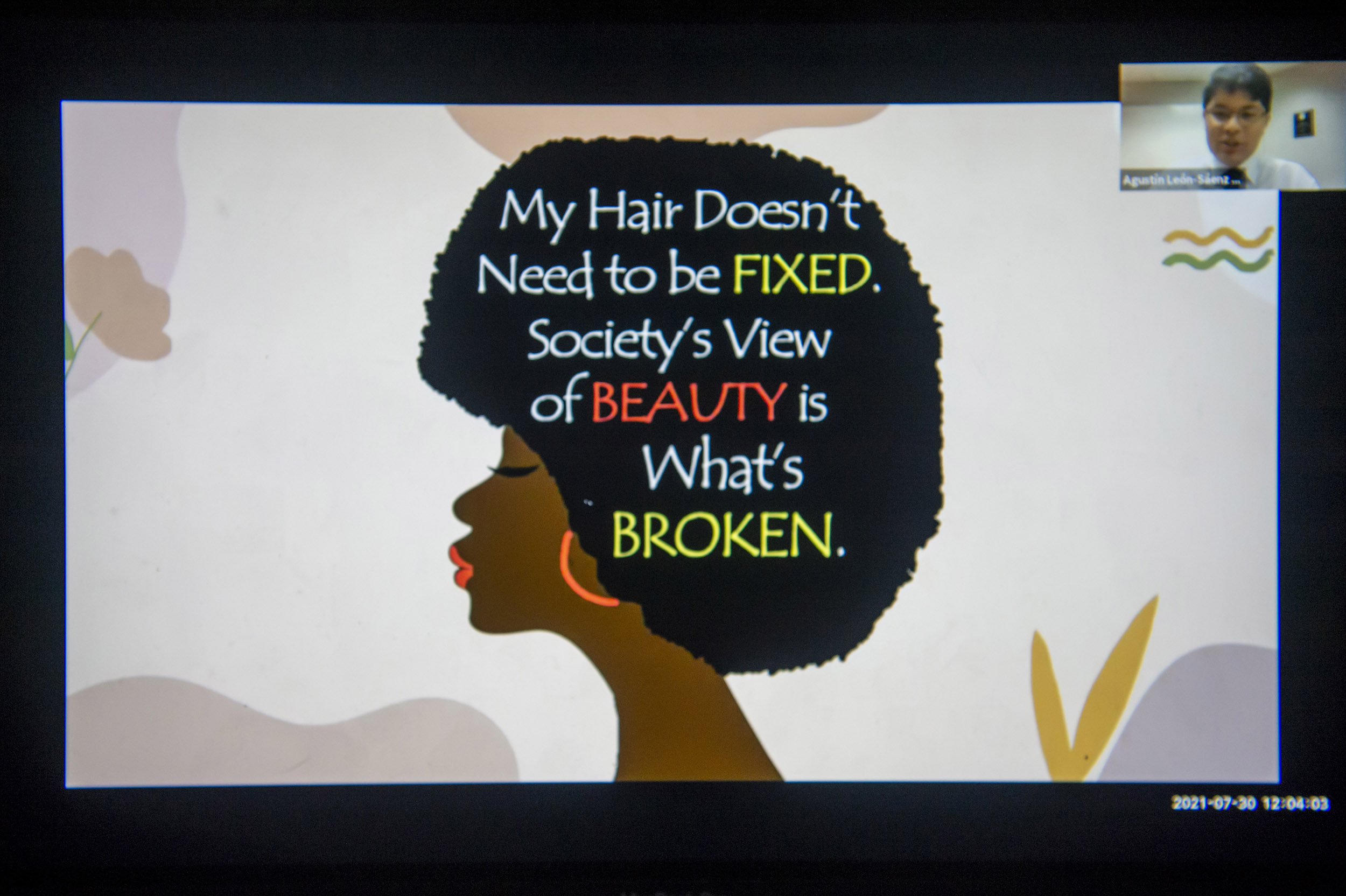
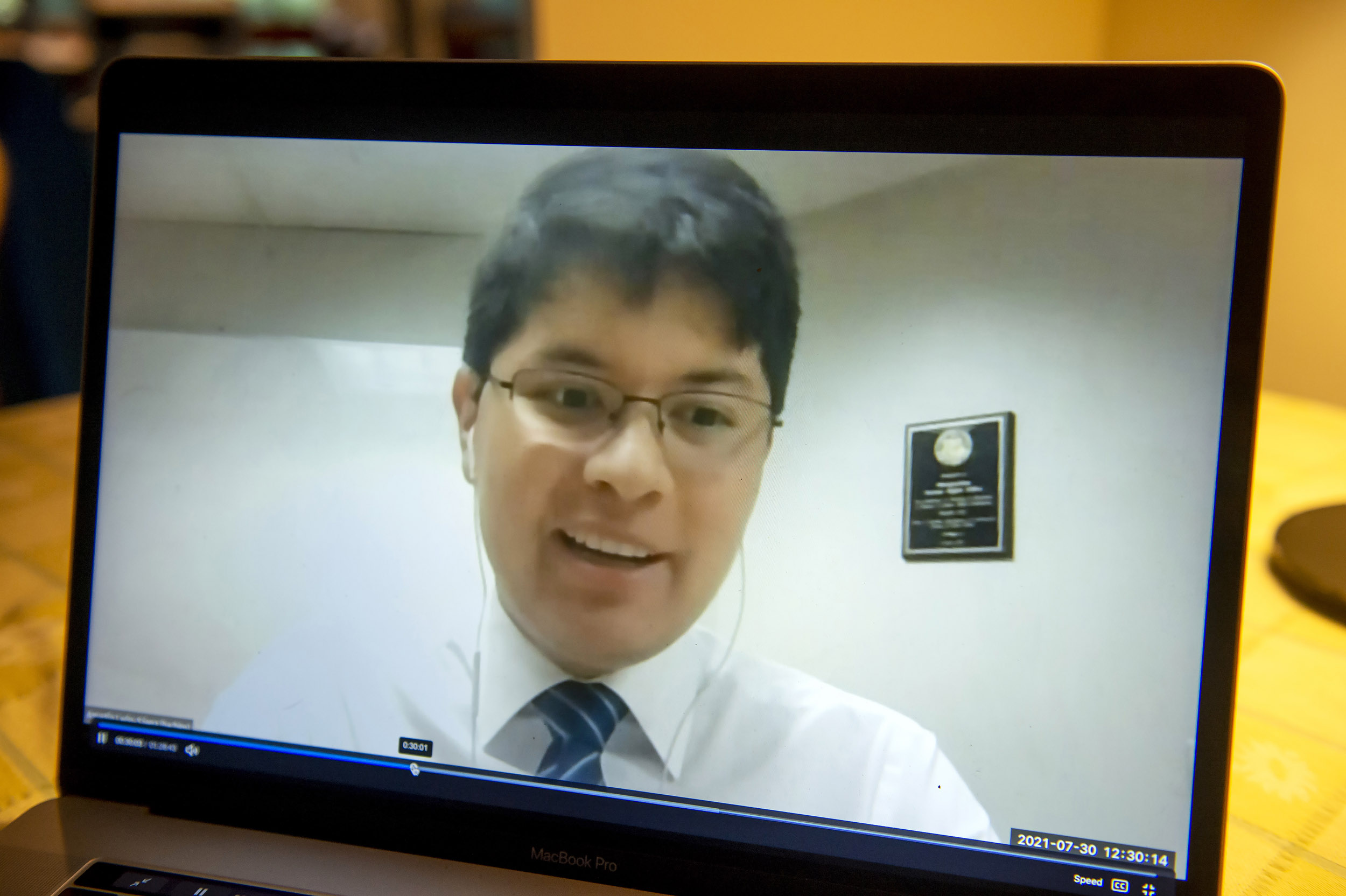
Agustín León-Sáenz used his SPARK fellowship to address equity issues — including race-based hair discrimination.
Photos by Jon Chase/Harvard Staff Photographer
Agustín León-Sáenz
Albuquerque, New Mexico
New Mexico Black Central Organizing Committee
As a youth leader for the New Mexico Black Central Organizing Committee (NMBCOC), Agustín León-Sáenz has worked to end race-based hair discrimination against the Black community. In recent years, activists have successfully gotten anti-bias laws passed in several states prohibiting schools and workplaces from creating grooming restrictions targeting hairstyles associated with race, which have been viewed by some as unprofessional or inappropriate.
Before joining SPARK, León-Sáenz helped advocate for such a measure, the recently enacted Albuquerque CROWN Act — an acronym for Create a Respectful and Open Workplace for Natural Hair — and the New Mexico Free the Hair Act.
After the two laws passed, León-Sáenz organized a public awareness campaign with the support of SPARK to educate community members about the new laws and to share resources for Black New Mexicans who had experienced race-based hair discrimination.
On July 30, the NMBCOC held a #FreeTheHair Town Hall, with León-Sáenz as a youth moderator. The event, which was held virtually in collaboration with the City of Albuquerque Office of Civil Rights, included Drexel University Professor Wendy Greene, a legal architect of CROWN measures nationwide.
León-Sáenz said that the laws are already being used in court. An eighth grader sued her Albuquerque school district after she was suspended for purple streaks in her hair. The lawsuit claims that other non-Black students with similar hair coloring did not face the same disciplinary action.
“It’s definitely an issue that’s continuing, but I think that getting the word out about this legislation is super important because obviously, even to this day, there’s a lot of discrimination that goes on,” he said.
Working on his SPARK project has allowed León-Sáenz to learn about equity issues that need to be addressed and to connect with students around the country who are also part of the program, he said.
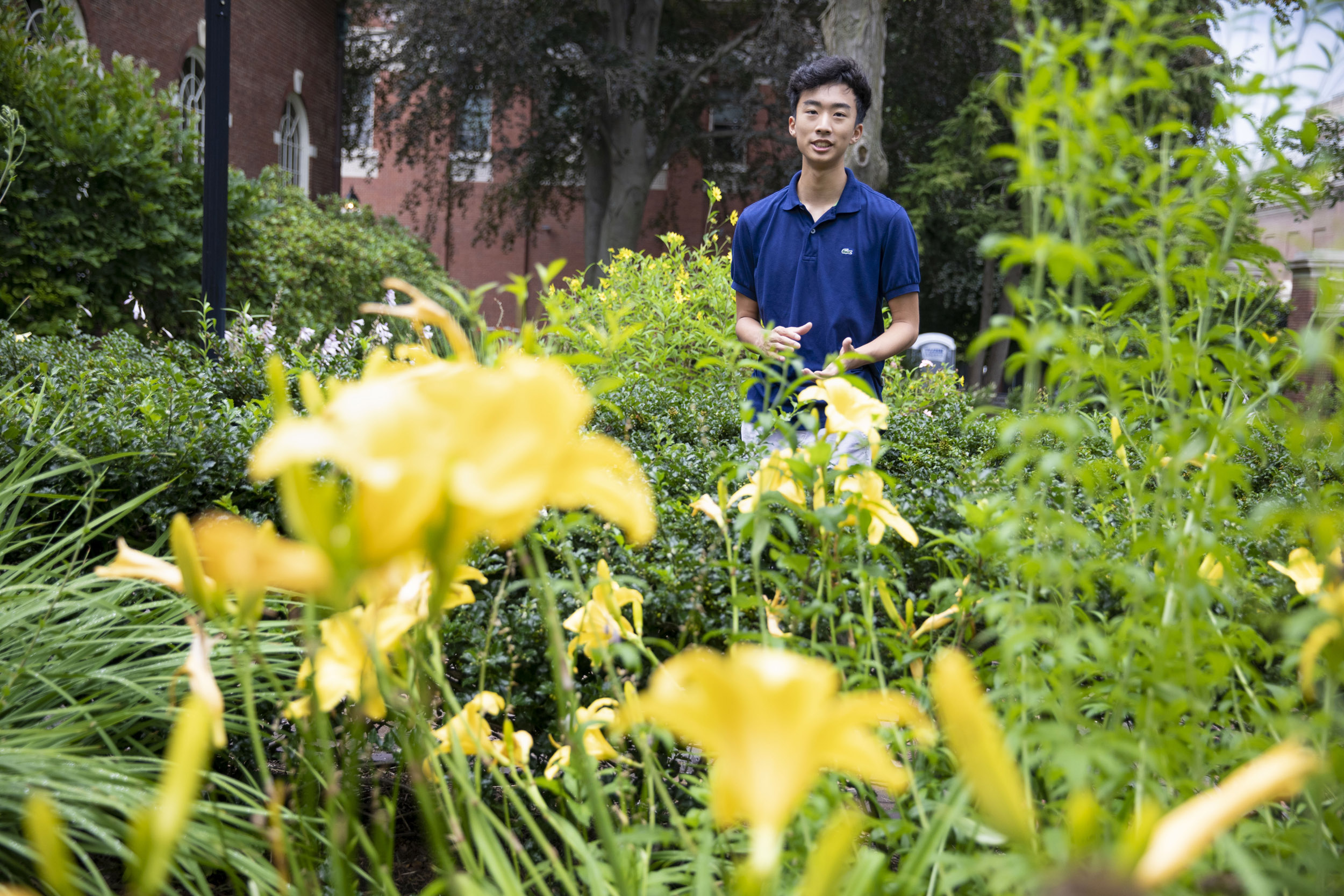
Through his work, Matt Tengtrakool raised awareness of the importance of a community garden.
Kris Snibbe/Harvard Staff Photographer
Matt Tengtrakool
Burlington, Massachusetts
Burlington Community Garden
Eagle Scout Matt Tengtrakool applied his passion for the environment, nutrition, and education in his town’s backyard: the Burlington Community Garden.
“The community garden is such an important central hub for people to have access to gardening, especially those who live in apartments and who don’t have much personal land,” said Tengtrakool, who created the garden after many years of volunteering at the local food pantry and starting his own agricultural education nonprofit, QuaranGreen.
Working with garden volunteers and staff at the Burlington Science Center, Tengtrakool led the construction of a shaded seating area for group gatherings, which included a small pollinator garden and visitor kiosk. He saw SPARK as a way to build a bridge between his life in Burlington and his new home on campus. He plans to continue working on educational projects once he moves to Cambridge.
“In the near future, I want to develop more educational elements for the garden,” including an agriculture-based curriculum for school groups to utilize during visits, he said. “I want to instill a bit of longevity into the project that the gardens can continue to use.”
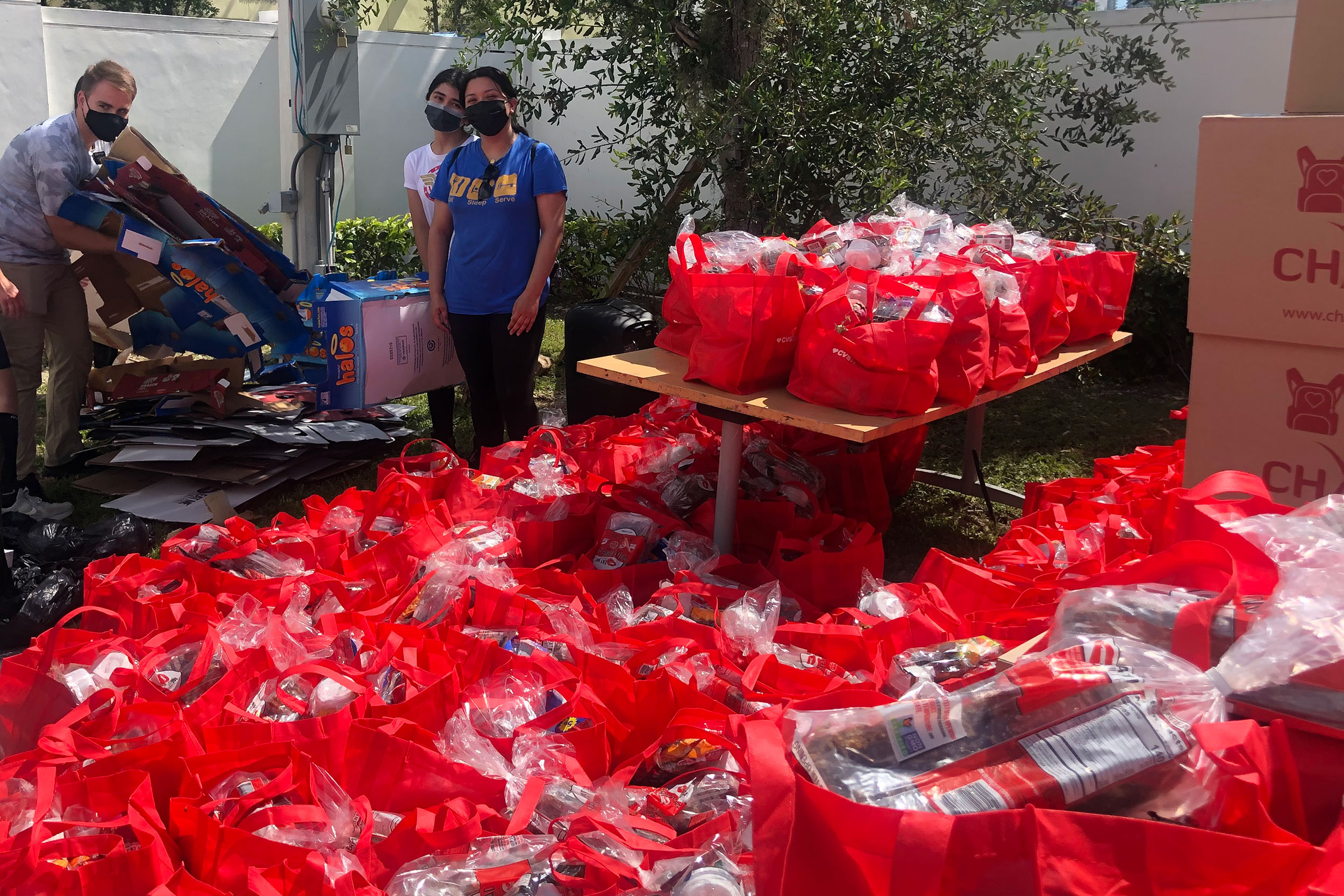
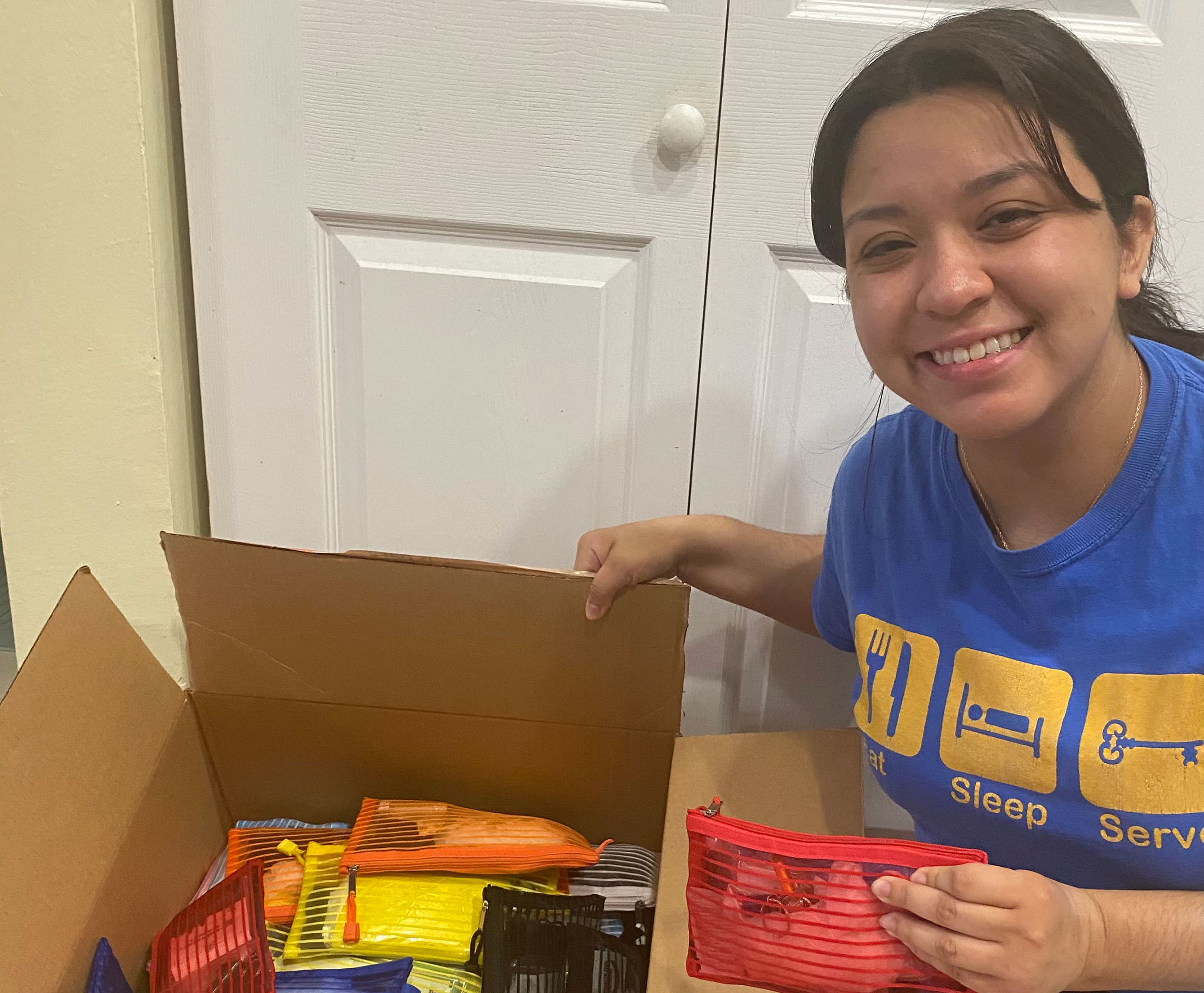
In early August, Alejandra Beltran held a hurricane preparedness giveaway for the Lotus House Women’s Shelter.
Courtesy of Alejandra Beltran
Alejandra Beltran
Hialeah, Miami
Lotus House Women’s Shelter
Alejandra Beltran is committed to community service. In high school, she not only served as president of the student-led service organization Key Club, but also launched her own organization called aeioYOU to run annual service campaigns for those in need.
When she learned about SPARK she began thinking about needs in her community. Some of them arise from the fact that her home region of South Florida faces the threat of hurricanes on a regular basis. So, Beltran decided to reach out to Lotus House Women’s Shelter, which provides sanctuary, support, and resources to women and children experiencing homelessness in the Miami area, with an offer to run a hurricane-preparedness campaign.
Beltran developed a lesson in Spanish to share with shelter residents and organized a collection drive to put together 72-hour hurricane kits, which include a laminated information card with key resources in case of hurricanes, a flashlight, an emergency blanket, a rain poncho, and some medical supplies. She’s held at least two workshops to share her lesson with residents, wants to conduct a couple more, and hopes that her project will have a longer-lasting impact.
“The 72-hour kit has things that are not going to expire. We can keep on doing this,” she said. “People can keep on giving the lesson. So, it’s starting something that hasn’t been done before.”
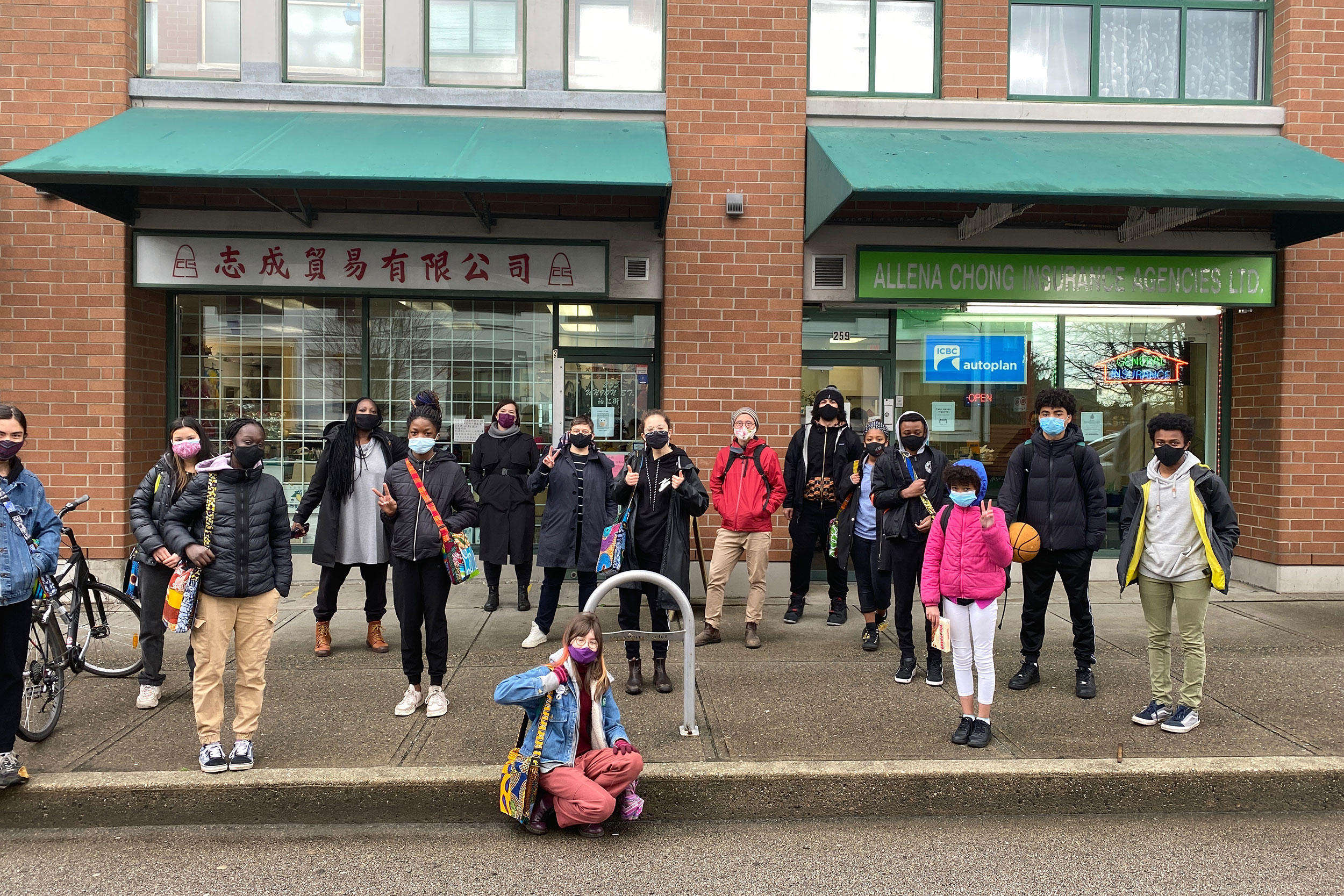
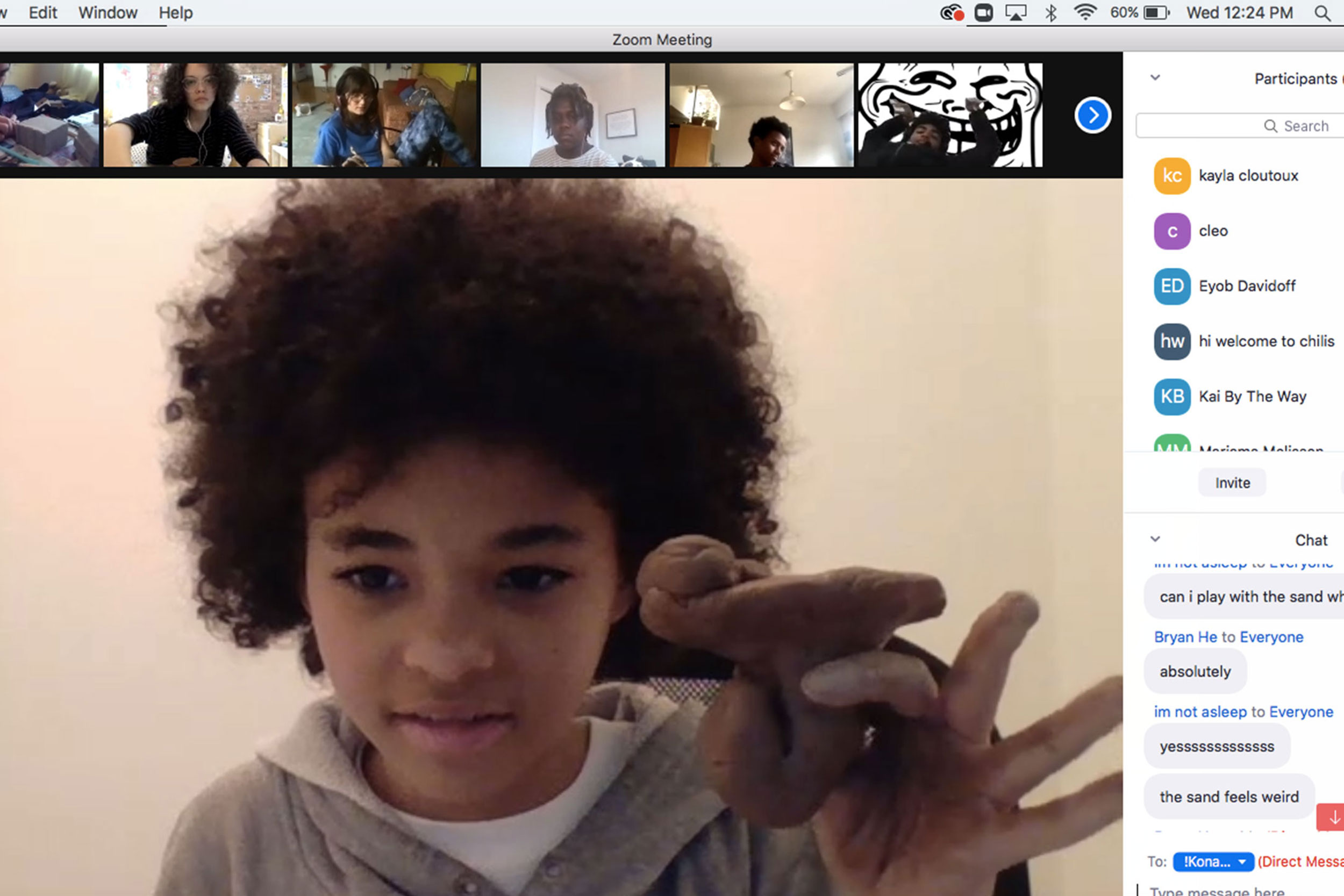
Eyob Davidoff (pictured in Zoom screen) worked with Ethọ́s Lab in Vancouver. The organization held an Ethọ́s Walk for kids 13 -18.
Courtesy of Eyob Davidoff
Eyob Davidoff
Vancouver, Canada
Ethọ́s Lab
Eyob Davidoff knows how hard it can be to find your own place in a new community. Born in Ethiopia, Davidoff was adopted as a toddler and moved to Oakland, California, before ultimately settling in Vancouver. When it came time to figure out his service project for SPARK, it was important to Davidoff that it involve helping to build community.
Davidoff became a leader with Ethọ́s Lab, an organization that allows youth aged 13-18 to experiment with emerging technologies and participate in workshops, mentorships, and events to give them creative problem-solving skills. The organization, which serves children and teenagers, markets itself as “Hogwarts meets Wakanda, where you decide what happens next.”
Davidoff spent his summer running Ethọ́s Lab’s various camps as it prepares to move into a physical space this fall. His work has let him teach younger members how to become leaders themselves.
Davidoff’s SPARK participation has also introduced him to fellow SPARK participants and allowed him to start building connections with students who will become friends. He added that he’s learned an important lesson from participating in SPARK: “You don’t have to sacrifice your service work, the communities you’re tied to, in order to go to Harvard. To [reach] one goal you don’t have to sacrifice another.”




